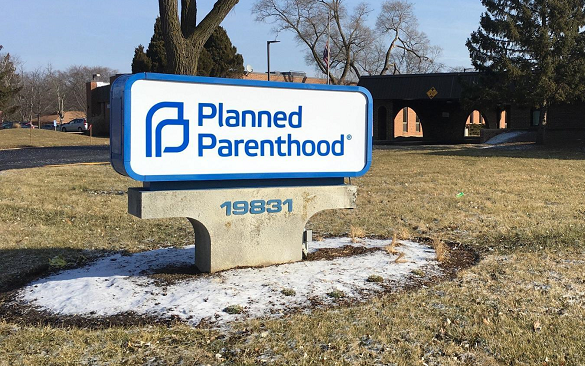A federal judge blocked an Arkansas law Monday that requires Planned Parenthood to be prepared to handle patient emergencies.
U.S. Judge Kristine Baker previously blocked the law after Planned Parenthood of the Heartland sued, but the 8th Circuit Court of Appeals lifted her block, saying she had not presented enough evidence about how the law would hurt women’s access to abortion. In May, the U.S. Supreme Court refused to hear an appeal of the 8th Circuit Court ruling.
In her decision Monday, Baker presented new evidence claiming the law presents a “substantial obstacle to a woman’s choice to undergo an abortion,” the Arkansas Times reports.
Arkansas and the abortion business Planned Parenthood of the Heartland have been involved in a court battle over the law since December 2015. The law requires abortion facilities that sell abortion drugs to maintain an agreement with another doctor who has hospital admitting privileges to treat patients who experience emergency complications.
Pro-life Arkansas Attorney General Leslie Rutledge said they will appeal the ruling and keep working to protect women’s lives.
“Under this preliminary injunction, medication abortion providers can now administer these procedures without the necessary safety net available to women who experience emergencies and complications,” her office said in a statement. “… Attorney General Rutledge will appeal to the 8th Circuit and do everything in her power to protect the lives of Arkansas women.”
Here’s more from the local news:
The judge had once before enjoined the law requiring an agreement between clinics and doctors with hospital admitting privileges. The 8th Circuit Court of Appeals lifted that injunction. It said the judge hadn’t developed enough evidence on the number of women who’d be affected. She gathered more information, issued a two-week temporary restraining order that expired at 5 p.m. today and has now again issued a preliminary injunction.
In the 148-page order, Baker concluded the benefits of the law were outweighed by damage to women and Planned Parenthood. She said no harm would come to the state from the injunction.
Planned Parenthood executive vice president Dawn Laguens praised the ruling in a statement.
“When this law went into effect for two weeks, we saw patients scrambling, without another plan,” she said. “We cannot and will not let that become a reality for women nationwide. Now is the time for us to unite and fight for everyone’s rights and freedoms.”
Two Planned Parenthoods in Arkansas temporarily stopped aborting unborn babies in May after the U.S. Supreme Court refused to hear its case. It is not clear how many unborn babies’ lives were saved through canceled appointments, but, for a time, just one abortion facility in the state was open.
SIGN THE PETITION! Congress Must De-Fund Planned Parenthood Immediately
The abortion facilities could have continued aborting unborn babies again if they had complied with the law; however, they said they have not been able to find doctors willing to work with them.
Baker previously blamed “widespread animus” toward abortion as part of the reason Planned Parenthood could not find doctors willing to enter an agreement with them.
“There is evidence in the record that physicians who provide abortions or associate with physicians who provide abortions risk being ostracized from their communities and face harassment and violence toward themselves, their families, and their private practices,” Baker wrote. “Even if a physician is willing to take on these risks … many private practice groups, hospitals, HMOs, and health networks will not permit physicians working for them to associate with abortion providers.”
Last summer, Rutledge asked the federal circuit court to overturn the initial block and allow the law to go into effect. The attorney general argued that the lower court judge’s ruling was based on “clearly erroneous” findings.
In the appeal, the state argued that abortion drugs can result in serious complications, including incomplete abortions and the death of the woman. The state attorneys said Planned Parenthood sometimes refers patients who are experiencing complications to other abortion facilities or the emergency room, but it “cannot guarantee another provider will care for the patient.” They argued that the state law is necessary to protect patients in such cases.
The abortion drug RU-486 has a high complication rate and can be deadly to the mother as well as her unborn baby if complications are not treated. According to the FDA, at least 14 women have died and 2,207 women have been injured by the drug in America.








